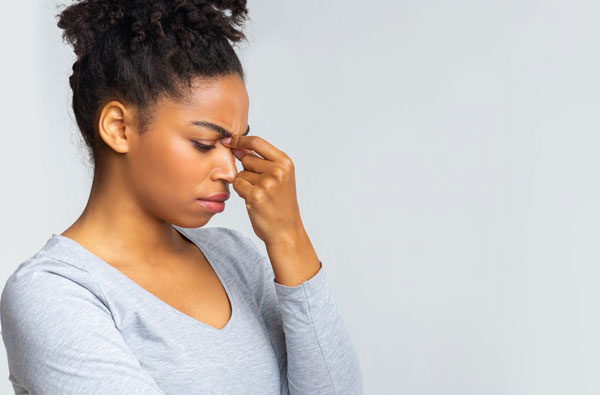
Monday – Friday: 10am – 7pm
Saturday: 10am – 6pm
Sunday: 1pm – 6pm

Our paranasal sinuses are mucus-making air cavities in the bones near the nose. The mucus keeps the inside of the nose moisturized and stops micro-organisms from entering the body.
But blocked nasal passages can trap mucus in the sinuses and lead to sinusitis—an infection or inflammation of the sinus lining.
It can be hard to tell the difference between allergies and sinusitis. The two conditions share the symptoms of runny nose, nasal congestion, and sinus pressure. Itchy, watery eyes and an itchy nose are telltale symptoms of seasonal allergies; thick green or yellow nasal discharge is the calling card of sinusitis.
This herb, native to India and Sri Lanka, has long been used in Ayurvedic and traditional Chinese medicine practices to stimulate the immune system and reduce the inflammatory symptoms of sinusitis. But anyone taking certain meds such as blood pressure–reducing drugs, anticoagulants, and antiplatelet drugs should not use andrographis.
Bromelain is an enzyme found in pineapple. Studies show that taking bromelain supplements can help improve symptoms of sinusitis, including the thinning of mucus secretions. Bromelain thins the blood, so consult your healthcare practitioner if you take blood-thinning meds or have a bleeding disorder.
This natural plant compound acts as an antihistamine and reduces mucus secretion. It’s often combined with bromelain and vitamin C in supplement form.
Butterbur works well for allergies, appearing to inhibit inflammation. In one study with more than 300 participants, butterbur worked as well as Allegra at reducing hay fever symptoms.